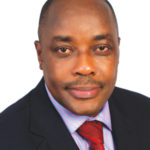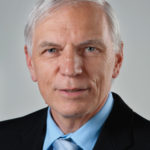Training and workforce issues will be the topic of discussion during the annual ILAR Session: How Rheumatologists Are Trained Around the Globe on Tuesday from 2:30 – 3:30 pm in Room 31 C. Leaders representing the four global rheumatology leagues will discuss the ways rheumatologists are trained in their respective regions, including the different skill sets for teaching rheumatology fellows, areas where training differs significantly, and common elements for rheumatology training worldwide.

Olufemi Adelowo, MD, FRCP, MACR, of Lagos State University College of Medicine and University Teaching Hospital in Nigeria, will discuss the status of rheumatology training in Africa. Dr. Adelowo is President of the African League of Associations in Rheumatology (AFLAR) will moderate the session.
“Frankly, one of the most significant challenges we face is a low interest in rheumatology because of a poor understanding of scope and pattern of rheumatological diseases,” Dr. Adelowo said. “There are various misconceptions, such as the assumption that arthritis is just one disease and not a manifestation or presentation of many different diseases.”
The lack of fundamental rheumatologic education, he said, comes mainly from poor training facilities and insufficient amount of staff for training in rheumatology, both at undergraduate and postgraduate levels.
“We are recently beginning to see an increased interest in rheumatology training,” Dr. Adelowo said. “As more trained rheumatologists go out to practice in hospitals around Nigeria, for example, an increasing awareness is being paid to rheumatological diseases. We are also working to harmonize the various postgraduate training programs in West Africa and developing guidelines for common rheumatological conditions seen in this region.”

European League Against Rheumatism (EULAR) President Johannes W.J. Bijlsma, MD, PhD, of the University Medical Center Utrecht and Amsterdam Rheumatology and Immunology Center in The Netherlands, will talk about workforce and training challenges in Europe.
“Although we continue to increase training opportunities, there is still a shortage of rheumatologists in many European countries,” Dr. Bijlsma said. “While the patient needs are clearly there, the finances are not available everywhere they are needed to create new posts for rheumatologists.”
Dr. Bijlsma said European Union (EU) countries continue to work on implementing a common training curriculum for rheumatologists and standardizing the requirements that allow trained rheumatologists to practice in any EU country.
“Rheumatology continues to increase its status among the different medical specialties and is attracting more and more of the brightest trainees,” Dr. Bijlsma said. “Becoming a rheumatologist is one of the most challenging opportunities for young doctors who want to make a difference for their patients. By allowing an EU-trained rheumatologist to work in any EU country, we can get them to where they are most needed.”
Pan American League of Associations for Rheumatology (PANLAR) President Carlo Vinicio Caballero-Uribe, MD, PhD, of Universidad del Norte in Colombia, will discuss the current state of the rheumatology workforce and training environment across regions of Latin America.
“Although rheumatic and musculoskeletal diseases represent one of the most common causes of disability around the world, a recent survey of 320 rheumatologists of Pan American rheumatology societies showed that only 29 percent of medical schools have a course of rheumatology,” Dr. Caballero-Uribe said. “And most of the courses that are offered do not follow a standard curriculum, are not taught by rheumatologists, and do not take advantage of the modern theories of learning.”
To improve and promote rheumatology education, Dr. Caballero-Uribe said a new program, PanlarEDU, combines web-based education and the use of social media to deliver online courses and information on CME activities and initiatives.
“PanlarEDU currently includes a monthly live online session, interactive cases, and the use of social networks, such as Twitter, to complete the education experience,” he said. “The main advantage offered by PanlarEDU is the ability to use new forms of information transmission to deliver quality Spanish-language rheumatology continuing education with comprehensive content in a novel format.”
Also during the session, Asia Pacific League of Associations for Rheumatology (APLAR) President Kazuhiko Yamamoto, MD, PhD, will provide an overview of training and workforce issues in the Asia Pacific region of the world. Dr. Yamamoto is Head of the Laboratory for Autoimmune Diseases at RIKEN Center for Integrative Medical Sciences in Yokohama, Japan.
